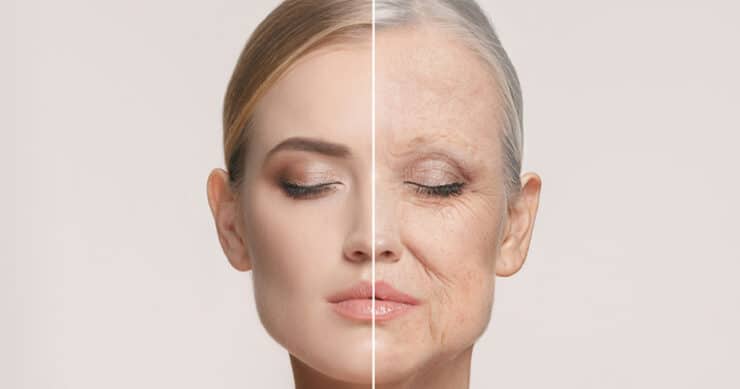It’s the middle of Little League season, and I’m preparing to spend yet another night on the ball diamonds.
Diamonds. Plural.
My two sons are both playing this year but as they are four years apart, they are in different divisions. Their game schedules don’t always line up but, on this night, they do. And so I’ll stand in the outfield watching one play for an inning before jogging over to the first base line of a nearby field to watch the other.
Fingers crossed I don’t spill my concession stand popcorn, which will likely qualify as dinner.
Once the game wraps up, we will head home. It will be the first time I’ve been inside in more than 12 hours. But we will be far from resting. It will be a race to get the boys showered and ready for bed, get dishes washed, and everything prepped for the next day.
According to the Gallup-Healthways Well-Being Index, women ages 45 to 64 are considered to be the most stressed. While at 42, I’m not quite middle aged — just on the cusp of the age group of women — I can see how well-being can easily slide down your list of priorities. Women are often balancing work, family, and personal pursuits. They also might be caring for aging parents.
And all of that stress can take its toll. Think gray hair, wrinkles, memory issues, and even getting sick more often.
But what if I told you that all of that could be reversed. Well, maybe not the gray hair. Research is now showing that managing stress and improving your overall well-being with intentional relaxation and exercise might be the new anti-aging treatment.
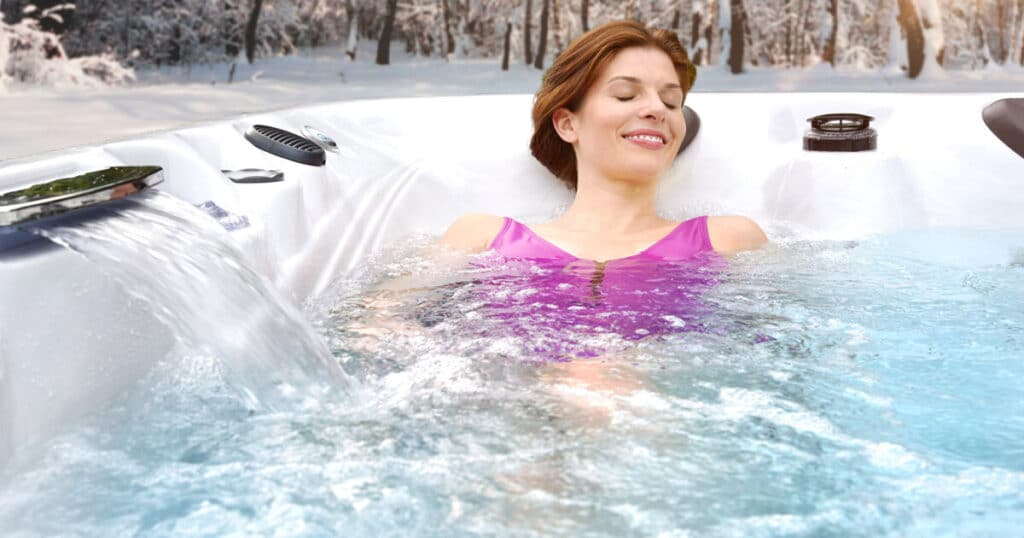
Biological versus chronological age
When someone asks your age, they want to know how many years you have lived. That’s your chronological age.
But how well you function is not necessarily based on that number. You might be 42 but you could function much older depending on your lifestyle. When you experience chronic stress or have unhealthy habits, it affects you on a cellular level. Your cells will accumulate damage and become less able to divide and multiply.
A recent study in Cell found that your biological age can fluctuate but chronic stress can increase that age.
The good news: “When the stress was relieved, biological age could be fully or partially restored.”
How do you find out your biological age? Well, it is not as easy to measure as your chronological age. You can do an assessment of your overall health and functioning, taking into account a variety of biological markers. These can include blood pressure, cholesterol levels, blood glucose, markers of inflammation, and hormone levels.
There are other approaches, too, but their reliability, accessibility, and affordability can vary significantly.
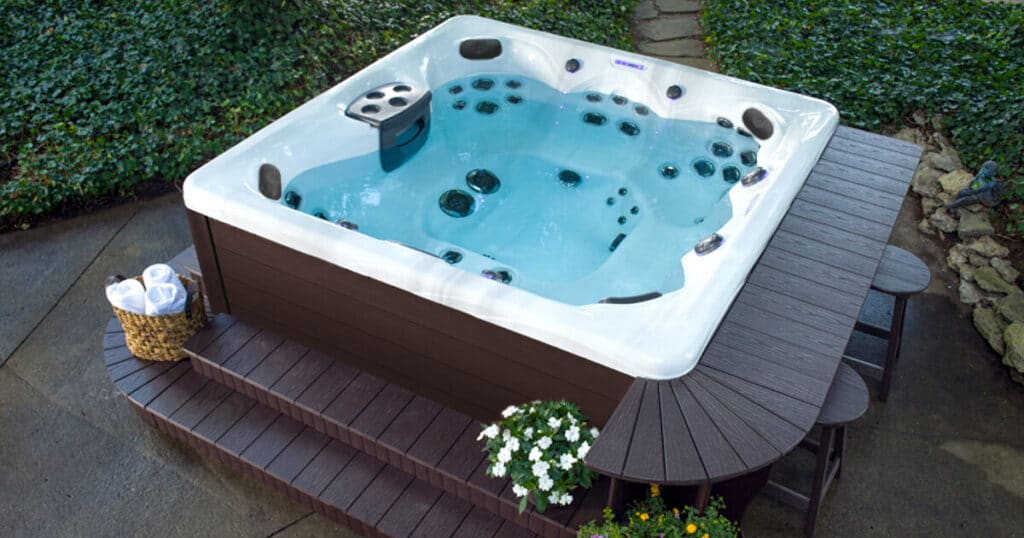
Why does stress make us age?
Stress is an inevitable part of life. You have work pressures and personal challenges, family struggles and even friend drama. All of that stress can take a toll on your mental and physical well-being.
And you feel it. You might have more frequent headaches or struggle to sleep. Your stomach might ache or your appetite has changed.
However, it’s important to understand the long-term implications of chronic stress. Recent scientific studies have shed light on the fascinating connection between stress and the aging process.
Cellular aging
Telomeres, the protective caps at the ends of our chromosomes, play a crucial role in cellular aging. With each cell division, telomeres naturally shorten. However, chronic stress has been found to accelerate this shortening process. A study in the Proceedings of the National Academy of Sciences of the United States of America found that women who experienced chronic stress had shorter telomeres compared to those with less stress. Shortened telomeres are associated with an increased risk of age-related diseases, reduced longevity, and accelerated aging.
Inflammation and aging
Inflammation has become a buzz word in the current discussion about health and wellness. While inflammation is a normal response that helps the body fight off infections and heal injuries, it has developed a bad reputation. Why? When you experience chronic inflammation, the side effects are not so great. You are more likely to experience weight gain, diabetes, and cardiovascular disease, among other conditions. When it comes to aging, chronic inflammation can cause neurodegenerative disorders, and impaired immune function.
Hormonal imbalance and aging
Adrenaline can make you feel invincible. The release of the hormone can increase your focus, make you feel stronger, and reduce your pain sensitivity. When you feel stressed, your body releases adrenaline and other hormones, including cortisol. These hormones are great when you are in a fight or flight situation. However, when prolonged or chronic stress disrupts the delicate hormonal balance in the body, high levels of cortisol, commonly associated with chronic stress, can have profound effects on various physiological processes. It can lead to reduced collagen production, impaired wound healing, decreased bone density, and muscle wasting. What does that mean for aging? You are more likely to have weaker bones, less muscle tone, and visible wrinkles.
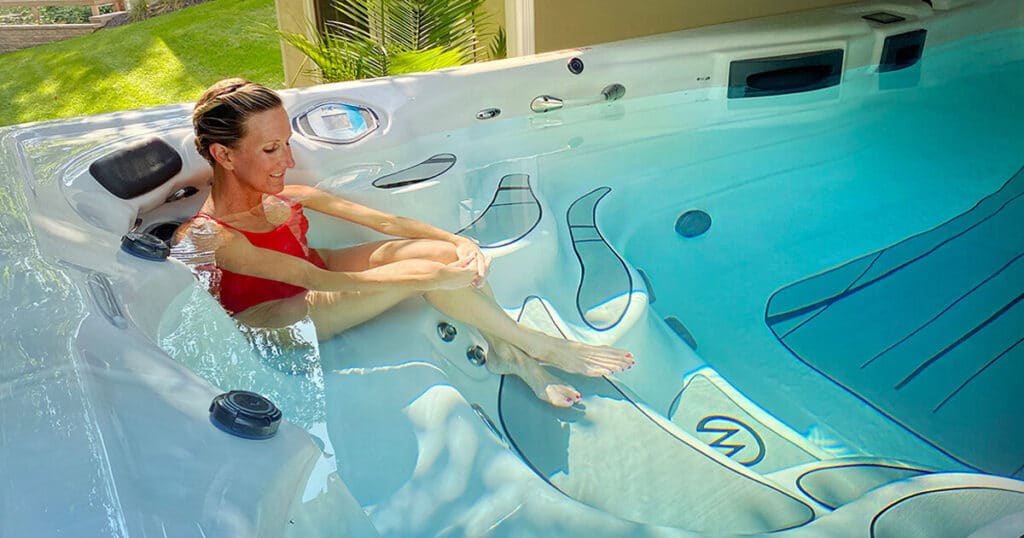
Water exercise and relaxation for stress management
When you look in the mirror, you can see the effect that stress can have. Elevated stress levels can lead to the release of cortisol, a hormone known to break down collagen, impair skin elasticity, and promote wrinkles. You might also see a few more gray hairs or struggle with acne.
But you can feel the stress, too. Your muscles are tense, and your joints ache. Sleep becomes a struggle. You don’t move with the same energy as you once did.
However, overcoming a stressful situation or managing chronic stress can help you feel restored and potentially slow down the signs of aging.
Swimming, water exercise, and hot tub therapy have long been known to be beneficial toyour physical and mental health. But more than that, they can be incorporated into a holistic approach to managing your stress and anxiety.
Stress reduction through water exercise
Exercise is a well-established way to feel less stressed. According to a Stress in America survey, 35 percent of respondents reported that exercise puts them in a good mood and 30 percent say they feel less stressed.
But of those surveyed, only 17 percent of people reported exercising daily. And some — 39 percent — said they were more likely to skip a session when they were feeling stressed.
It’s important, though, to find a form of movement that makes you feel good. Water exercise, such as swimming, water aerobics, or aqua jogging, offers a low-impact workout that is gentle on joints. The buoyancy of water reduces the impact on your body, allowing for increased range of motion and flexibility.
When immersed in water, your body experiences a sensation of weightlessness that promotes relaxation and reduces muscle tension. The rhythmic movements in water exercise, coupled with the natural resistance of the water, engage both your mind and body, distracting you from daily worries and providing a sense of mental clarity.
If getting to the pool adds to your stress, an at-home water exercise option can be beneficial. A Master Spas swim spa combines the benefits of a pool with the therapy of a hot tub. On your most stressful days, you can swim against the continuous water current for 15 minutes. But you can also jog, row, or use aquatic dumbbells to work out the tension.
Master Spas swim spas are designed to be used year-round and, with the built-in heating system, you can set the water to your perfect temperature. A temperature in the low 90s can be ideal for aquatic therapy and a relaxing exercise session.
Hot tub therapy for relaxation
Soaking in a hot tub can be a welcome escape from the demands of daily life, offering a momentary respite from responsibilities and worries. Just stepping into the warm water can give you that sense of ahhsome.
Beyond its physical benefits, hot tub therapy has a profound impact on mental well-being. As you submerge yourself in the waters, the hot tub’s ambiance encourages mindfulness and introspection. Master Spas hot tubs have premium hydrotherapy jets, which stimulate the release of endorphins. You can adjust the water pressure and the direction of the flow, further enhancing the relaxation response.
But the relaxation of a hot tub is not just in your head. There are physical benefits, too.
The hot water in a spa or hot tub helps dilate blood vessels, promoting better blood circulation and oxygen flow throughout the body. This increased circulation helps muscles recover and reduces inflammation. The combination of warmth and buoyancy in a hot tub soothes sore muscles and joints, alleviating discomfort and promoting physical relaxation.
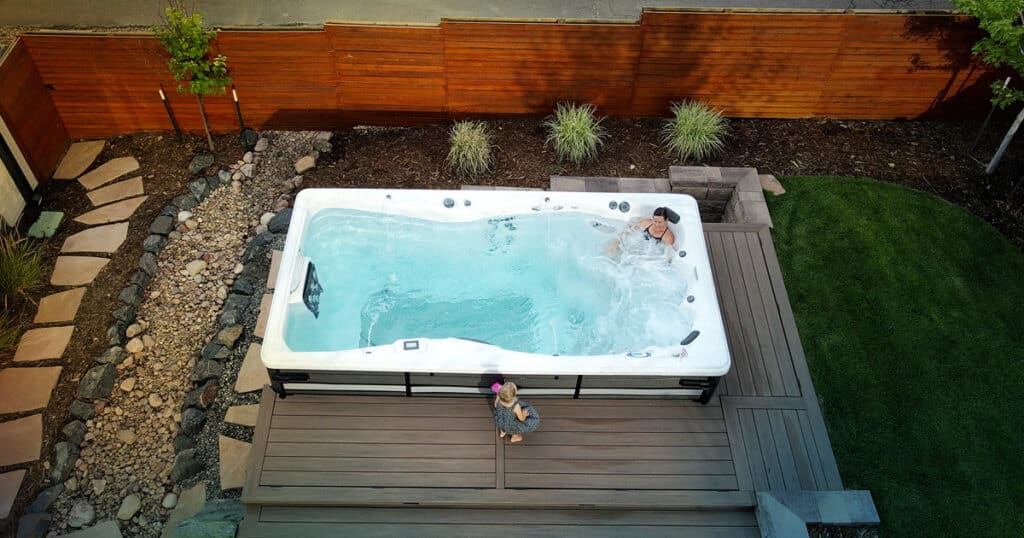
Create your own stress relief experience
Look forward to spending more time in your own backyard oasis. A Master Spas hot tub or swim spa can be enjoyed safely by the entire family. Learn more about the benefits of hydrotherapy. Or, contact your local Master Spas retailer to learn more about spa ownership. Wondering how much a Master Spas hot tub or swim spa costs? You can request a quote here.


